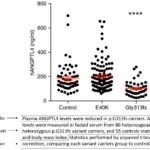The short answer … Yes – if you do not declare that it is a translated version of an already published paper. No – if you make it clear that it is a translated version, i.e., not original research. This blog English is the (current) universal language of science. The pressure on English-as-a-second-language (ESL) researchers […]
How to write a figure caption
Figure captions should be standalone, i.e., descriptive enough to be understood without having to refer to the main text. Effective captions typically include the following elements: a declarative title that summarises the result or major finding of the data you are presenting in the figure; a brief description of the methods necessary to understand the […]
Want to peer review but never invited?
There are many benefits to peer reviewing articles for journals. Reading cutting-edge research can inform your own research, help you keep up to date with current trends in your field, improve your writing skills, and expose you to new ways of presenting your work to the scientific community. Peer reviewing is also a great way […]
How long should you wait before sending an enquiry to the editor?
In short, 3 months. From reviewing academic forums (see here, here, and here), the general consensus among researchers appears to be 3 months (but see here and here). It is not clear where this figure came from. It may be related to the typical wait times researchers have become accustomed to. An analysis of ~3 […]
Affect or effect?
The basics ‘Affect’ is a verb. It means to influence something, e.g. Diet affects a person’s risk of cancer. Diet actively influences a person’s risk of cancer. ‘Effect’ is a noun. It means an outcome, i.e., the result of an action: An effect of global warming is poorer air quality. We are describing the result […]





